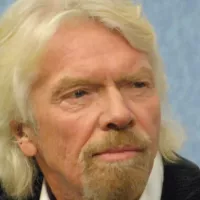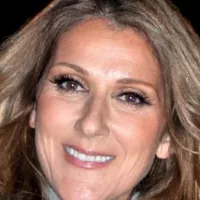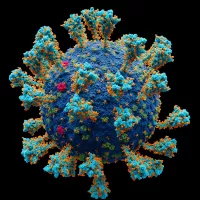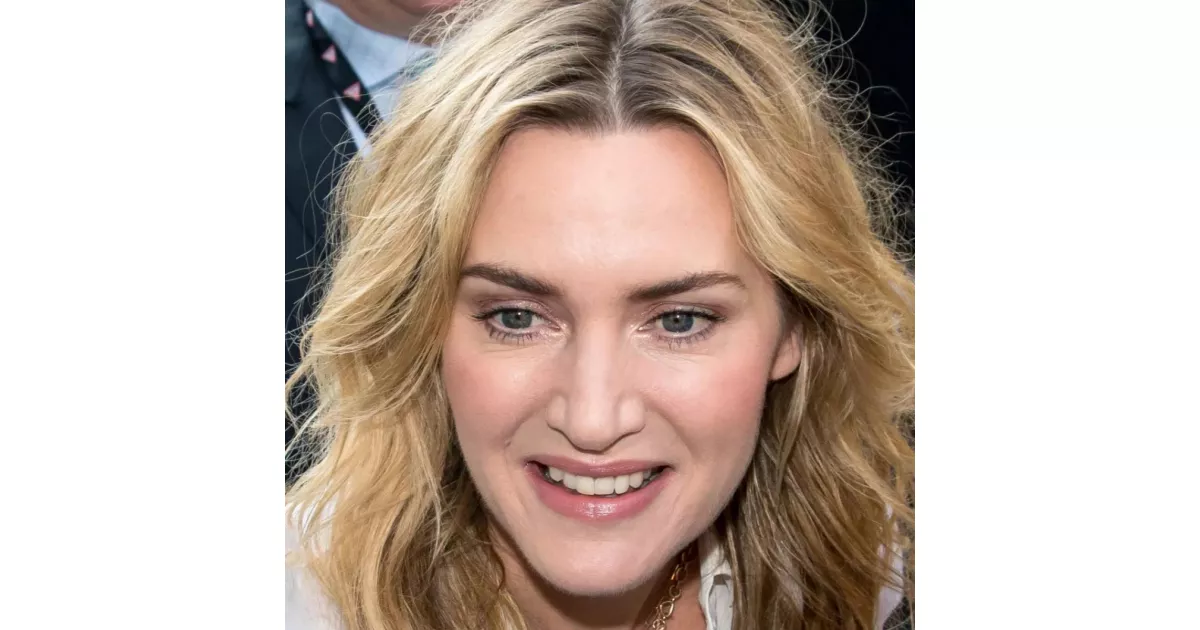Kate Winslet is a highly acclaimed English actress renowned for portraying strong, complex women, particularly in independent films and period dramas. Her impressive list of awards includes an Academy Award, two Primetime Emmy Awards, five BAFTA Awards, and five Golden Globe Awards. Recognized for her influence, Time magazine included her in their list of the 100 most influential people in the world in both 2009 and 2021. Winslet was also honored as a Commander of the Order of the British Empire (CBE) in 2012.
1954: The Parker-Hulme Murder Case
In 1954, the Parker-Hulme murder case took place, which later served as the basis for the film Heavenly Creatures, starring Kate Winslet.
October 1975: Kate Winslet's Birth
In October 1975, Kate Elizabeth Winslet was born in Reading, Berkshire, to Sally Ann (née Bridges) and Roger John Winslet.
1991: First Screen Appearance in Dark Season
In 1991, Kate Winslet made her first screen appearance at age fifteen in the British television series Dark Season.
1991: Screen Debut in Dark Season
In 1991, Kate Winslet made her screen debut in the BBC science fiction television series Dark Season, written by Russell T Davies, playing Reet.
1992: Role in Anglo-Saxon Attitudes and Get Back
In 1992, Kate Winslet had a small part in the television film Anglo-Saxon Attitudes and also took on a role in the television sitcom Get Back.
1992: Reference to Unforgiven
In 2015, The Dressmaker film, starring Winslet, was described by its director as reminiscent of the movie Unforgiven (1992).
1993: Guest Role in Casualty
In 1993, Winslet had a guest role in an episode of the medical drama series Casualty.
1994: Acted in Heavenly Creatures
In 1994, Kate Winslet starred in Heavenly Creatures.
1994: Auditioned for Mary Shelley's Frankenstein
In 1994, Winslet unsuccessfully auditioned for Kenneth Branagh's film Mary Shelley's Frankenstein.
1995: Acted in Sense and Sensibility
In 1995, Kate Winslet starred in Sense and Sensibility.
1995: Won BAFTA Award for Sense and Sensibility
In 1995, Kate Winslet won the BAFTA Award for Best Actress in a Supporting Role for Sense and Sensibility.
1995: Earned £20 million since 1995
In 1995, The UK Film Council calculated that Kate Winslet had earned £20 million from her acting roles since 1995.
1996: Acted in Hamlet
In 1996, Kate Winslet starred in Hamlet.
1996: Roles in Jude and Hamlet
In 1996, Winslet played roles in two period dramas: Jude, where she played Sue Bridehead, and Hamlet, where she played Ophelia.
1997: Acted in Titanic
In 1997, Kate Winslet starred in Titanic.
1997: Global Stardom with Titanic
In 1997, Winslet achieved global stardom with her leading role in James Cameron's epic romance Titanic, which became the highest-grossing film at the time.
1998: Role in Hideous Kinky
In 1998, after Titanic, Winslet starred in the low-budget drama Hideous Kinky, based on the novel by Esther Freud.
1999: Roles in Holy Smoke!, Faeries, and Grammy Win
In 1999, Kate Winslet starred in Holy Smoke!, voiced a fairy in Faeries, and won a Grammy Award for narrating "The Face in the Lake" for Listen to the Storyteller.
1999: Won Grammy Award for Listen to the Storyteller
In 1999, Kate Winslet won the Grammy Award for Best Spoken Word Album for Children for narrating the children's audiobook Listen to the Storyteller.
1999: Turned down Roles in Shakespeare in Love and Anna and the King
In 1999, Winslet turned down offers to star in Shakespeare in Love and Anna and the King to do Hideous Kinky.
2000: Role in Quills
In 2000, Winslet played a sexually repressed laundress in the biopic Quills, starring Geoffrey Rush and Joaquin Phoenix.
2001: Performed "What If" for Christmas Carol: The Movie
In 2001, Winslet performed the song "What If" for the soundtrack of the film, Christmas Carol: The Movie.
2001: Starred in Biopic Iris
In 2001, Winslet starred alongside Judi Dench in the biopic Iris, portraying novelist Iris Murdoch at different ages. Winslet prepared by reading Murdoch's novels and studying her husband's memoir. Her performance earned her third Oscar nomination, along with BAFTA and Golden Globe nominations.
2001: Role in Iris
In 2001, Winslet starred in the critically acclaimed period piece Iris.
2001: Release of Christmas Carol: The Movie
In 2001, Winslet's third film release was the animated movie Christmas Carol: The Movie, based on Charles Dickens' novel. She also recorded "What If" for the film's soundtrack, which became a commercial success.
2003: Starred in The Life of David Gale
In 2003, after a year-long absence, Winslet starred in the thriller The Life of David Gale, playing a journalist interviewing a professor on death row. She took the role to work with director Alan Parker, and because she felt the film raised relevant questions about capital punishment.
2003: GQ magazine altered photographs
In 2003, the British edition of GQ magazine published digitally altered photographs of Kate Winslet to make her look thinner and taller, without her consent. GQ later issued an apology.
2004: Acted in Eternal Sunshine of the Spotless Mind and Finding Neverland
In 2004, Kate Winslet starred in Eternal Sunshine of the Spotless Mind and Finding Neverland.
2004: Starred in Eternal Sunshine of the Spotless Mind
In 2004, Winslet starred in the science fiction romance Eternal Sunshine of the Spotless Mind, playing a woman who decides to erase memories of her ex-boyfriend. She received Best Actress nominations at the Oscar and BAFTA ceremonies for the role, which she considers a turning point in her career.
2005: Included on People magazine's "Most Beautiful People" listing
In 2005, Kate Winslet was included on People magazine's "Most Beautiful People" listing. She has spoken against Botox and plastic surgery and formed the British Anti-Cosmetic Surgery League to encourage natural aging.
2005: Guest Role in Extras and Starred in Romance & Cigarettes
In 2005, Winslet had a guest role in an episode of the British comedy sitcom Extras, receiving a Primetime Emmy Award nomination. She also starred in Romance & Cigarettes, a musical romantic comedy, requiring her to sing and dance. She declined Woody Allen's offer to star in Match Point (2005) to spend more time with her children.
2006: Acted in The Holiday
In 2006, Kate Winslet starred in The Holiday.
2006: Film Releases: All the King's Men, Little Children, and The Holiday
In 2006, Winslet appeared in All the King's Men, followed by the critically acclaimed Little Children, for which she received BAFTA and Academy Award nominations. She also starred in the romantic comedy The Holiday. She received BAFTA and Academy Award nominations for Little Children
2006: Roles in Little Children and The Holiday
In 2006, Winslet gained further recognition for her performances in Little Children and The Holiday.
2007: Won libel case against Grazia magazine
In 2007, Kate Winslet won a libel case against Grazia magazine after it claimed she had visited a dietitian. She claimed £10,000 in damages and donated it to an eating disorder charity.
2007: Narrated The Fox and the Child
In 2007, Winslet's sole project was narrating the English version of the French children's film The Fox and the Child.
2008: Won BAFTA Award for The Reader
In 2008, Kate Winslet won the BAFTA Award for Best Actress in a Leading Role for The Reader.
2008: Roles in Revolutionary Road and The Reader
In 2008, Winslet starred in Revolutionary Road and The Reader.
2008: Starred in Revolutionary Road
In 2008, Winslet starred in Revolutionary Road, directed by her then-husband Sam Mendes, alongside Leonardo DiCaprio. The film explored the tribulations of a young married couple in 1950s suburban America. Her performance was highly praised.
2009: Forbes reported annual salary and named one of Time's most influential people
In 2009, Forbes reported Kate Winslet's annual salary to be $2 million. In 2009 She was also named one of the 100 most influential people in the world by Time magazine.
2009: Won libel case against Daily Mail
In 2009, Kate Winslet won a libel case against the British tabloid Daily Mail after it claimed she had lied about her exercise regimen. She received an apology and a payout of £25,000.
2009: Named One of Time's 100 Most Influential People
In 2009, Time magazine recognized Kate Winslet as one of the 100 most influential people in the world, marking a significant recognition of her impact and influence.
2010: Narrated PETA video
In 2010, Kate Winslet narrated a video for PETA showing animal cruelty in foie gras production, encouraging chefs to remove it from menus and consumers to boycott it.
2011: Acted in Contagion and Mildred Pierce
In 2011, Kate Winslet starred in Contagion and Mildred Pierce.
2011: Won Primetime Emmy Award for Mildred Pierce
In 2011, Kate Winslet won the Primetime Emmy Award for Outstanding Actress in a Leading Role in a Limited or Anthology Series or Movie for Mildred Pierce.
2011: Wax statue unveiled at Madame Tussauds
In 2011, Madame Tussauds in London unveiled a wax statue of Kate Winslet.
2011: Starred in HBO's Mildred Pierce
In 2011, Winslet starred in the HBO series Mildred Pierce, an adaptation of James M. Cain's novel. She played the titular character, a divorcée struggling to establish a restaurant business. Her performance earned her a Primetime Emmy Award, Golden Globe, and SAG Award for Best Actress in a miniseries.
2011: Starred in Contagion and Carnage
In 2011, Winslet starred in the ensemble thriller Contagion as a disease detective for the CDC. She also appeared in Roman Polanski's Carnage, adapted from the play God of Carnage, receiving Golden Globe nominations for her performance.
2011: Focus on Work After Divorce
In 2011, Winslet stated that her workload helped her overcome heartbreak from her divorce. She took on several projects. After completing work on Carnage, she took a break from acting to focus on her children.
2012: Movie 43 and audiobook Thérèse Raquin
In 2012, Winslet's sole screen appearance was in the anthology film Movie 43, which received negative reviews. Winslet also performed an audiobook recording of Émile Zola's novel Thérèse Raquin.
2012: Marriage to Edward Abel Smith
Since 2012, Kate Winslet has been married to businessman Edward Abel Smith.
2013: Starred in Labor Day
In 2013, Winslet starred in the film adaptation of Joyce Maynard's novel Labor Day. She portrayed Adele, an agoraphobic single mother who falls in love with an escaped convict. Her performance earned her tenth Golden Globe nomination.
2014: Received a star on the Hollywood Walk of Fame
In 2014, Kate Winslet received a star on the Hollywood Walk of Fame.
2014: Acted in Divergent
In 2014, Kate Winslet starred in Divergent.
2014: Starred in Divergent and A Little Chaos
In 2014, Winslet played Jeanine Matthews in the science fiction film Divergent and starred in A Little Chaos. She also read audiobooks of Roald Dahl's novels Matilda and The Magic Finger.
2015: Acted in Insurgent and Steve Jobs
In 2015, Kate Winslet starred in Insurgent and Steve Jobs.
2015: Supported UNICEF campaign and narrated Daisy Chain
In 2015, Kate Winslet supported UNICEF's World's Largest Lesson campaign to raise awareness among children about sustainable development and global citizenship. Also in 2015, she narrated Daisy Chain, an Australian animated short film about cyberbullying.
2015: Reprised Role in Insurgent and Starred in The Dressmaker
In 2015, Winslet reprised her role in Insurgent, the second instalment of the Divergent series, and starred in The Dressmaker. She won the AACTA Award for Best Actress for The Dressmaker.
2015: BAFTA and AACTA Awards for Steve Jobs and The Dressmaker
In 2015, Winslet won the BAFTA Award for her portrayal of Joanna Hoffman in the biopic Steve Jobs, and also won the AACTA Award for her performance in The Dressmaker.
2015: Article in Elle
In a 2015 article for Elle, Sally Holmes described Winslet's ability to establish rapport with her manner.
2016: Won BAFTA Award for Steve Jobs
In 2016, Kate Winslet won the BAFTA Award for Best Actress in a Supporting Role for Steve Jobs.
2017: Fundraiser on global warming and auctioned dinner
In 2017, Kate Winslet teamed up with Leonardo DiCaprio's environmental foundation for a fundraiser on global warming. Also in 2017, she and DiCaprio auctioned a private dinner to raise money for a British woman's cancer treatment.
2018: Teamed with Lancôme and the National Literacy Trust
In 2018, Kate Winslet teamed with Lancôme and the National Literacy Trust to launch a programme educating underprivileged women in the UK.
2020: Read a bedtime story for Save with Stories
In 2020, Kate Winslet read a bedtime story for Save with Stories to raise funds for Save the Children's Emergency Coronavirus Appeal.
2021: Commented on homophobia in Hollywood
In 2021, Kate Winslet commented on homophobia in Hollywood, noting that some actors fear their sexuality being revealed would hinder their casting in straight roles.
2021: Acted in Mare of Easttown
In 2021, Kate Winslet starred in Mare of Easttown.
2021: Named One of Time's 100 Most Influential People Again
In 2021, Kate Winslet was again named one of Time magazine's 100 most influential people in the world, reaffirming her continued influence and impact.
2021: Primetime Emmy Award for Mare of Easttown
In 2021, Kate Winslet won her second Primetime Emmy Award for her performance in Mare of Easttown.
2022: Acted in Avatar: The Way of Water
In 2022, Kate Winslet starred in Avatar: The Way of Water.
2022: Starred in I Am Ruth and Avatar: The Way of Water
In 2022, Winslet produced and starred in "I Am Ruth", winning two BAFTA TV Awards, and played a supporting role in Avatar: The Way of Water.
2025: Appointed as ambassador for The King's Foundation
In 2025, Kate Winslet was appointed as an ambassador for The King's Foundation.
Mentioned in this timeline
Home Box Office HBO is an American pay television service...

Adele Laurie Blue Adkins is a highly acclaimed English singer-songwriter...

Richard Branson is a prominent English business magnate best known...

C line Dion is a highly successful Canadian singer often...

Coronaviruses are a family of RNA viruses affecting mammals and...

Christmas is an annual festival celebrated on December th commemorating...
Trending

6 minutes ago Clara Tauson Dominates Linette in Dubai, Secures WTA 1000 Quarterfinal Spot

6 minutes ago Pegula Defeats Jovic, Advances to Dubai Quarterfinals; Set to Face Tauson
6 minutes ago Toyota Supra and Lexus LC May Share Platform for Next Generation Models
7 minutes ago Alaska Airlines pilots get shocking pay raises, reshaping network and margins.
7 minutes ago Ramadan 2026 Timetable: Fasting Hours, Suhoor, and Iftar Times Worldwide Confirmed.
1 hour ago Ski Mountaineering to Debut at Milan-Cortina Winter Olympics in 2026.
Popular

Jesse Jackson is an American civil rights activist politician and...
Randall Adam Fine is an American politician a Republican who...

Pam Bondi is an American attorney lobbyist and politician currently...

Barack Obama the th U S President - was the...

Martin Luther King Jr was a pivotal leader in the...

Ken Paxton is an American politician and lawyer serving as...
